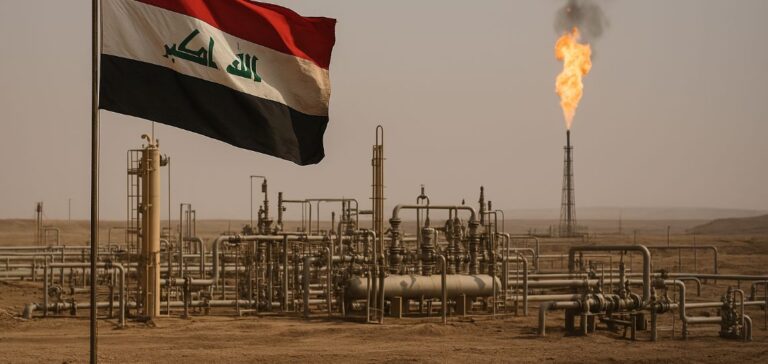Iraq has concluded a memorandum of understanding with GE Vernova, a US-based energy company, to develop Combined Cycle Gas power plants with a capacity of 24,000 megawatts. The agreement was signed in Baghdad between Iraqi Minister of Electricity Ziyad Ali Fadel and a GE Vernova representative, during a ceremony attended by Prime Minister Mohamed Chia al-Soudani. The project, described as the largest and most advanced ever launched in the country, is expected to benefit from external financing provided by international banks, according to an official statement.
Strengthened cooperation amid complex diplomatic context
The signing took place on the sidelines of a visit by a US trade delegation comprising 60 companies, led by the US Chamber of Commerce. This marks the largest American commercial initiative in Iraq to date. The announcement comes as Baghdad attempts to balance its strategic relationship with the United States and its energy alliance with Iran, whose natural gas currently powers a significant portion of Iraq’s electricity production.
The deal with GE Vernova comes as Iraq struggles with a persistent energy deficit. Although endowed with considerable oil resources, the country has ageing infrastructure and a generation capacity estimated at 16,000 megawatts. To meet demand during peak consumption periods, especially in summer when temperatures can exceed 50 degrees Celsius, approximately 55,000 megawatts would be required.
Energy independence and diversification of sources
In parallel with this partnership, Iraqi authorities have signed a second memorandum of understanding with UGT Renewables, a solar energy company, for a project with a capacity of 3,000 megawatts. The project also includes the development of 1,000 kilometres of high-voltage power lines, along with the modernisation of transmission and distribution networks.
Due to chronic dependence on Iranian gas imports—frequently interrupted by Tehran—Washington has asked Baghdad to accelerate efforts to eliminate all Iranian gas purchases. In March, the previous US administration declined to renew a waiver allowing Iraq to import electricity from Iran.
According to Farhad Alaaldin, foreign affairs adviser to the Iraqi Prime Minister, the government has implemented a plan to ensure energy independence and stabilise electricity supply. He also noted that the new agreement reflects a commitment to working with companies equipped with the necessary technology for sectoral reconstruction.





















